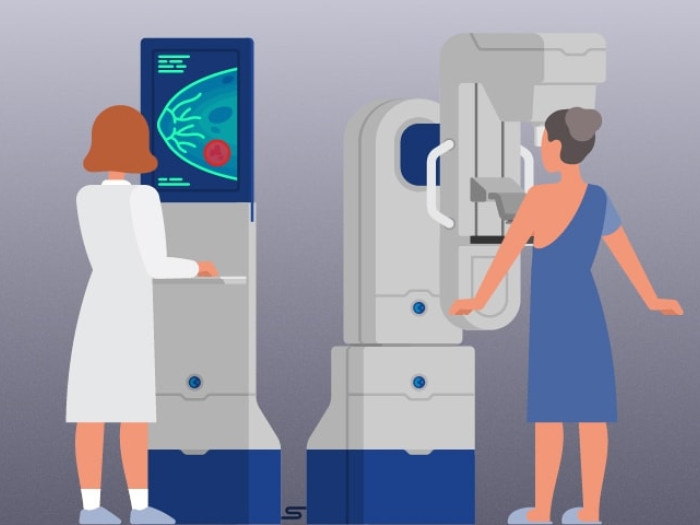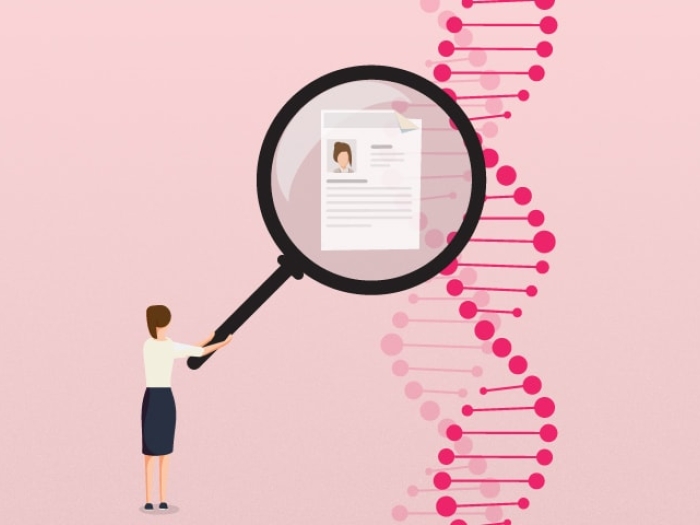Breast cancer patients who used an interactive website were more informed about options and felt better prepared to make a treatment choice.
7:00 AM
Author |

Breast cancer patients face complex decisions about their treatment.
MORE FROM THE LAB: Subscribe to our weekly newsletter
"Knowledge is a key component of decision-making, and yet it's consistently low even among patients who have received treatment. We need better tools to make these decisions more informed," says Sarah T. Hawley, Ph.D., MPH, professor of internal medicine at Michigan Medicine.
Hawley and colleagues from the Cancer Surveillance and Outcomes Research Team at the University of Michigan Rogel Cancer Center developed an interactive online tool to help patients understand their treatment options.
Compared with patients using a static informational website, those using the interactive tool had higher knowledge and felt more prepared to make a treatment decision, according to a new study in the Journal of Clinical Oncology.
Researchers enrolled 537 patients with newly diagnosed early stage breast cancer from multiple practices in four states. Patients were randomized to view a tailored, interactive decision tool called iCanDecide or to view similar information on a static website.
They were then surveyed about five weeks later, after making a treatment decision. In total, 496 completed the survey.
Overall, 61 percent of patients who used the interactive tool reported a high knowledge of treatment options, compared with 42 percent of patients who viewed the static material. Patients who used the interactive tool were also more likely to say they felt prepared to make a treatment decision, 50 percent, compared with 33 percent of patients viewing static material.
The interactive site was designed to walk people systematically through key facts about breast cancer surgery, such as how often cancer recurs and the likelihood of needing additional surgery. A second module on the website helped patients understand options about systemic treatment, such as chemotherapy. The paper assesses only the surgery module.
"Instead of throwing the information on the website and hoping patients would figure it out, we gave them the bullet-point fact, asked a question to see if they understood, and then allowed them to drill down and look at more detailed information. They couldn't just bounce around. They had to go through it in a linear fashion," Hawley says.
The tool also assessed patients' values, taking them through a series of hypothetical scenarios. In the end, each patient had a customized bar graph that showed how her preferences matched to treatments. For example, if the patient valued keeping her natural breast, the lumpectomy bar would be higher. Patients could interact with the figure to learn more.
A similar number of patients from both groups reported making a choice in line with their values. Hawley stresses that assessing a patient's values is key.
"The values clarification is important. If you don't combine the knowledge and the values, you get people making values-based choices that may not be fully informed," Hawley says.
Researchers plan to further refine the timing of when to deliver decision tools and assess patient values.
Read the research papers about cancer and decision-making published by members of Cansort, the Cancer Surveillance and Outcomes Research Team.

Explore a variety of health care news & stories by visiting the Health Lab home page for more articles.

Department of Communication at Michigan Medicine
Want top health & research news weekly? Sign up for Health Lab’s newsletters today!





